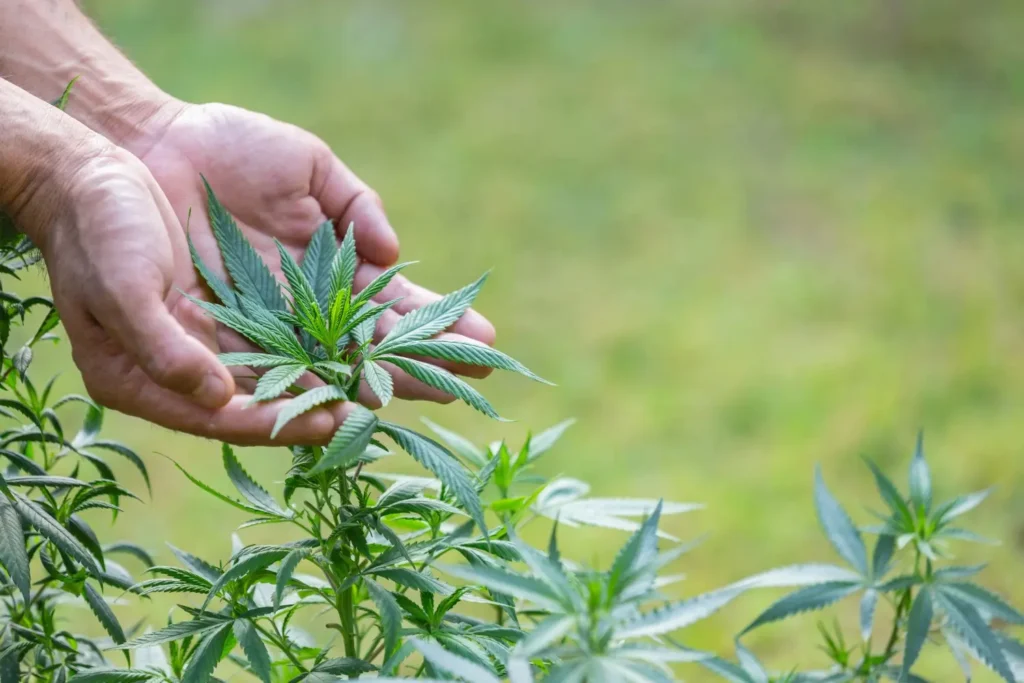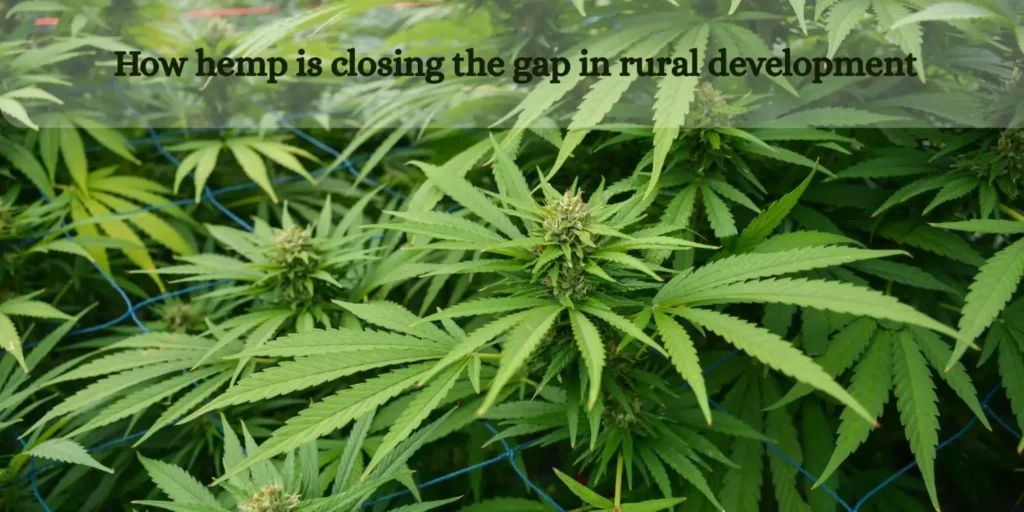Hemp is the most universal crop, having versatile properties and a low environmental impact. Hemp is emerging as one of the beneficiary crops of the Indian farmers and agricultural sector.
Traditionally, Indian civilization has had an immense impact on hemp in our culture, and it’s been cultivated since time immemorial. While it has been used in making ropes, textiles, and for medicinal purposes. Certain states in India have started many micro-projects and legalized hemp farming to an extent. These developments are paving the way for rural development in India.
The renewed loosened legislation on hemp cultivation and its proliferated impact has created opportunities for job creation, upgraded the local economies, and offered a potential up-gradation in the living standard and diminishing rural poverty.
You Can Read Also: Industrial Hemp Cultivation in India
HEMP’S PROLIFERATED ROLE IN RURAL DEVELOPMENT

Hemp has played an exponential role in the world over and has a positive impact on rural development.
1. New employment opportunities
Hemp farming is in dire need of labor-intensive activities from sowing to harvest and seed to shelf life in a consumerist society, which creates many lucrative employment opportunities, specifically in rural areas. For a specific sector of hemp, employment opportunities are opened for various stages of hemp production. And led to rural development in India.
2. Economic uniformity in the farms:
Hemp has high resilience and can grow with minimal water. It needs fewer pesticides and other elements, which makes it an economically viable option to be grown in any suitable climate. Hemp can adapt to different soil types and can withstand different environmental conditions.
3. Enhanced demand for hemp products:
There has been a huge market for hemp products such as textiles, hemp oil, bio-plastics, and cosmetics; its influence can be felt in both the national and international markets. Hemp-based products are at an upsurge of demand with the global shift towards sustainable and increased demand has escalated globally, which marks the presence of hemp in Indian cultivation and encourages farmers to grow more hemp and increase their income.
4. Good potentialities for foreign exchange:
Hemp fiber and hemp oil are popular in the global periphery due to their sustainable nature. The business and the economy tend to benefit from the exchange. This demand strengthens the prevalent rural economies by emphasizing the global market for hemp-based products.
5. Hemp as a universal crop:
Hemp is a universal and versatile crop and has multiple usages in textiles, construction, and cosmetics. In rural areas, the cultivation of hemp has enabled the small farmer to diversify their income. Hemp farming stabilizes and promotes financial stability.
HEMP FARMING JOB POSSIBILITIES
Let’s embark upon the possibilities to unlock the hidden gem, “hemp is creating farming jobs”. It is viewed as an essential crop having Vedic properties. It is a revolution in itself to bring uncanny changes in the field of agriculture.
It is an eco-friendly crop, which requires labor-intensive requirements at each stage of its production, mainly from the stage of sowing the seed to harvesting. And as its globally acclaimed crop, its market value is at its peak. It is viewed as a green alternative for Indian farmers, thus creating lucrative opportunities for the cultivators.
HEMP IMPRINT ON ECONOMIC IMPACT
Hemp is often cultivated as a dual-purpose crop; both fiber and seed and harvested from the same patch of land. Hemp is an exceptional plant; every part is useful, and it absorbs more CO2 as compared to other crops.
As there is a rise in awareness of hemp production, the global market may see an upsurge of $18.6 billion by 2027.
The growing market for industrial hemp opens new economic opportunities for developing countries. Because of its versatility and its different characteristics. Industrial hemp holds great potential in agriculture, textiles, food, beverages, and construction materials. Hemp can grow in a wide range of climates in almost every part of the country and helps replenish the soil.
In order to enhance its reach and growing opportunities, the government must clarify its legal status and remove it from being intoxicant. By exploring every part of the hemp roots, fruit, stem, and leaves, developing countries could build sustainable production chains that contribute.
HEMP COMMUNITY GROWTH
There are lots of hemp communities ever growing in the global hemp-producing era. The Humans of Hemp is India’s first hemp community and learning, which is thriving in success and bringing together education, product experts, businessmen, and individuals from every walk of life to build a sustainable economic future.
The NICHE concept is also the implementation of hemp cultivation. NICHE is becoming a new hype in community building as it is growing and cultivating even the smallest particle of cannabis sativa from which hemp has branched. Through its nanotechnology, and builds a stronger community for growth.
HEMP INDUSTRY BENEFIT
Despite economic upheaval, the hemp industry is witnessing rapid growth fueled by innovations and the exponential growth of hemp.
Hemp emerges as having a predominant position, in contributing to bio-diversity and carbon sequestration. More applications of industrial hemp have been started, and sustainable ideologies are gaining traction. There are not only single aspects of hemp for farming or food, but there is are broad spectrum of hemp. Hemp has revolutionized industries worldwide, from sustainable construction to health products.
The versatile, universal crop is shaping the sustainable future. It’s a transition from a controversial crop to a sustainable one. As the regulations loosen, everyone expects that hemp will be the challenging revolutionary, everything from manufacturing to medicine, making it a game changer.
WRAPPING UP
Hemp cultivation in India is at its peak, as its awareness is enhanced, many states may try to cultivate hemp and gain immense beneficial side from seed to flower, leaves, and stems, with a low environmental footprint, having sustainable characteristics of carbon sequestration.
It could play a cardinal role in India’s future agriculture and industrial landscape. There is a global shift towards sustainability that provides a vibrant opportunity for India. By investing in hemp technology, India can be a leading cultivator of the green economy. Which is having a bright, lucrative future in creating jobs and developing the rural transformation.

